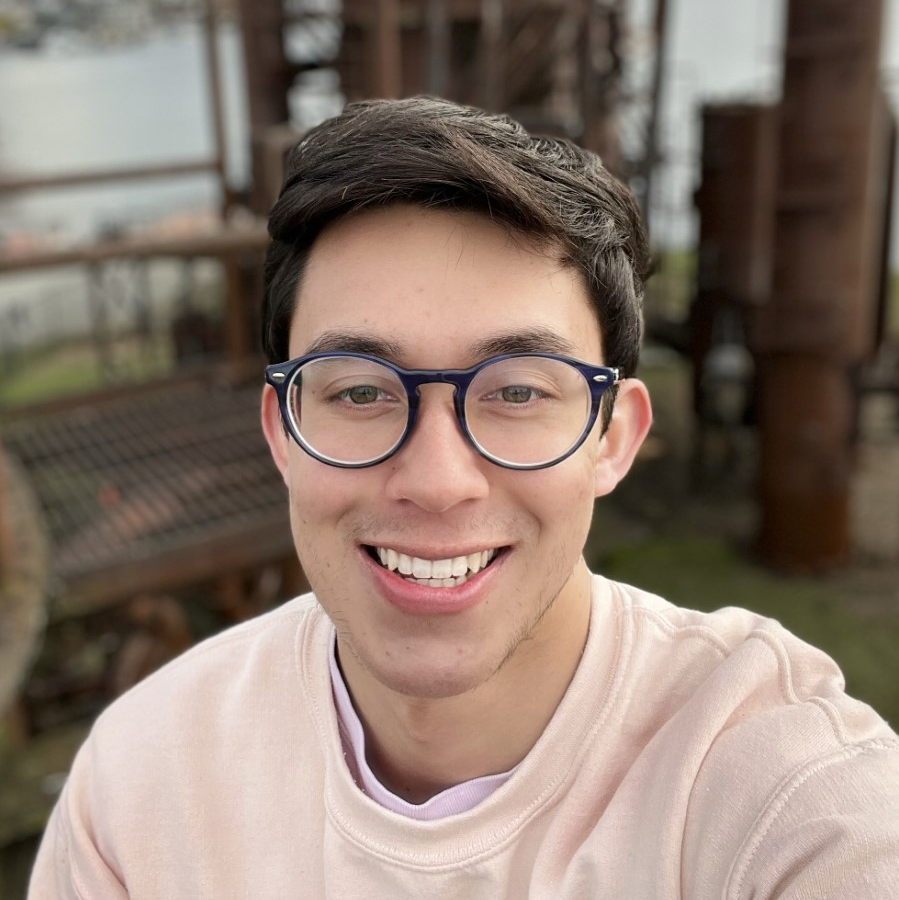Name: Dylan Riley
Year of Study: Senior
Major: Bioengineering
Please tell us a little bit about yourself.
I am currently a senior at the University of Washington in the Bioengineering Department. I am working with the Lutz lab as part of my team's capstone project on point-of-care diagnostics for HIV. Above all, the thing I value most in my personal and professional life is serving others with an undivided heart and ensuring the quality and well-being of those around me. Through my experiences at work and volunteering, I have learned the great value of teamwork and diversity, which are basic tools to grow as an individual and accomplish much more.
Why did you choose to pursue global health courses or a minor in global health?
I chose the global health minor simply because there are so many factors and aspects of daily life that lead to good health outcomes. Global health plays a critical role not only in the promotion of health and the prevention of disease but also in the empowerment of individuals to navigate life with resiliency and manage health issues that plague humanity. Every tiny or big scientific finding and awareness campaign creates a new understanding of what makes for good health and has the potential to positively impact the lives of millions of people around the world. Global health has the capacity to spark change from the actions of individuals and brings people from many disciplines together in the name of humanity to improve everyone’s quality of life.
How does the minor complement your core major studies?
The Global Health Minor has changed my perspective on health and human welfare. I have learned from my courses that healthcare does NOT produce good health outcomes. I have learned there are many factors, both proximate and distal, that contribute to the overall well-being of a person. Being an Americorps service member, global health has complimented my studies by revealing how the conditions of the places where a person lives, learns, works, grows, and plays largely impact health outcomes. In my volunteer experiences, I have used these insights to help address issues related to food and housing insecurity. I am proud to say the global health minor opened my eyes to the possibilities of making an impact, the great need to uproot the injustices within our communities that prevent so many people from having the basic services for a proper well-being, and the ways to plant the seeds of change.
What has been most valuable about your global health coursework or learning thus far?
The most valuable thing I can take away from my global health coursework is my understanding of social determinants of health. Spending a few months in Nepal at Dhulikhel hospital and rural outreach clinics as part of the bioengineering department, I was introduced to both the immense logistical and cultural challenges that are involved in delivering healthcare in a resource-limited settings. I learned time and time again that being aware of these challenges is far different from having actual and concrete experiences of understanding how and why they happen. The answers are not always pretty, and I will admit that there were times when I wished I could do more. Global health has helped me take an upstream approach when observing patient outcomes to try to understand why the patient has this diagnosis and how it relates to the proximate and distal factors of health.
What are your professional goals?
My aspiration after undergrad is to pursue a medical degree with an emphasis on serving rural communities. After graduation, I plan to embrace a one-year community health fellowship related to rural health outcomes and serving vulnerable populations because of systemic inequality and inequities. The global health field is a great interdisciplinary subject, which has given me a critical lens to tackle health inequities by utilizing the upstream model and revamping unlawful policies that are in place. It has made me an undying advocate to address the barriers that hinder individuals from not only living longer but also living healthier and more sustainable lives.
Please share your recommendation for prospective and/or current undergraduate students on ways in which they may maximize their experience in global health.
If you have even a slight interest in global health, I highly recommend taking a global health course! There are so many ways to get involved and grow as an individual in these courses. A class I really enjoyed was G H 101 with Todd Faubion and the amazing Noura Youssoufa. In this class, you cover a wide range of topics all related to the burden and distribution of disease in relation to the social determinants of health. You get to embrace an exciting project regarding improving the community health of a country. Many skills and understandings are gained from any global health course. Plus, all the staff, faculty, and TAs are absolutely lovely!
